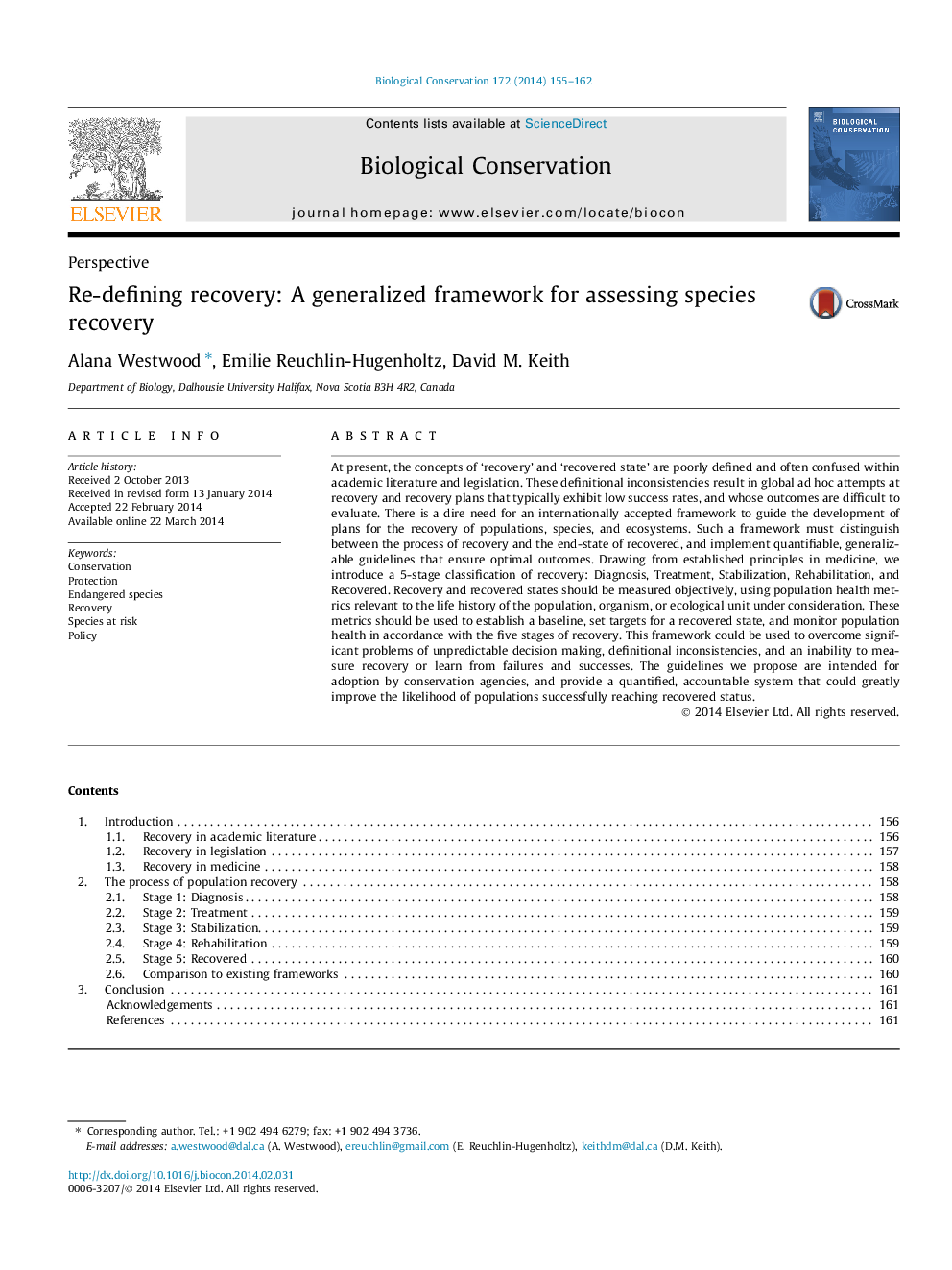| Article ID | Journal | Published Year | Pages | File Type |
|---|---|---|---|---|
| 6299759 | Biological Conservation | 2014 | 8 Pages |
â¢Literature and legislation confuses or does not define recovery and recovered state.â¢This confusion leads to low success rates in species/population recovery.â¢We propose quantifying recovery using ABC (Abundance, Biodiversity, Connectivity).â¢We introduce a five-stage recovery process for use by conservation agencies.
At present, the concepts of 'recovery' and 'recovered state' are poorly defined and often confused within academic literature and legislation. These definitional inconsistencies result in global ad hoc attempts at recovery and recovery plans that typically exhibit low success rates, and whose outcomes are difficult to evaluate. There is a dire need for an internationally accepted framework to guide the development of plans for the recovery of populations, species, and ecosystems. Such a framework must distinguish between the process of recovery and the end-state of recovered, and implement quantifiable, generalizable guidelines that ensure optimal outcomes. Drawing from established principles in medicine, we introduce a 5-stage classification of recovery: Diagnosis, Treatment, Stabilization, Rehabilitation, and Recovered. Recovery and recovered states should be measured objectively, using population health metrics relevant to the life history of the population, organism, or ecological unit under consideration. These metrics should be used to establish a baseline, set targets for a recovered state, and monitor population health in accordance with the five stages of recovery. This framework could be used to overcome significant problems of unpredictable decision making, definitional inconsistencies, and an inability to measure recovery or learn from failures and successes. The guidelines we propose are intended for adoption by conservation agencies, and provide a quantified, accountable system that could greatly improve the likelihood of populations successfully reaching recovered status.
Graphical abstractDownload full-size image
